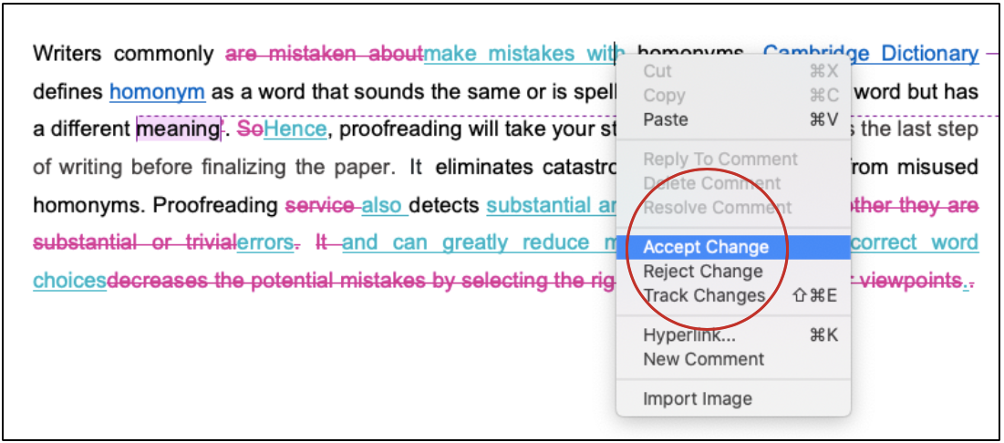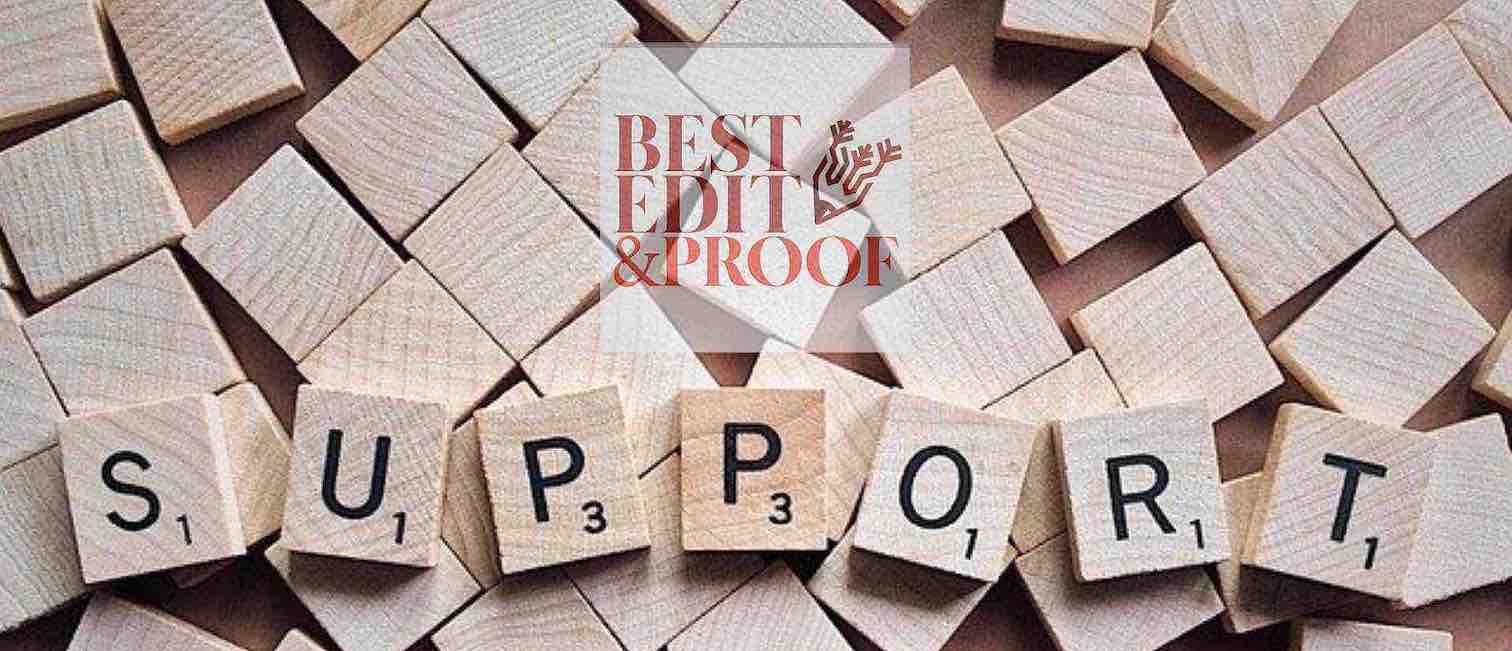It is no wonder that many scholars dread the editing process and harbor numerous concerns even before they start it. They become skeptical about their academic writing abilities and are more prone to make fundamental mistakes. However, if approached strategically and in an organized manner, editing a dissertation and academic documents can become a much easier task. This article lists and explains four editing guidelines that writers must implement to edit their dissertations efficiently.

Editing a dissertation is one of the most arduous undertakings for scholars pursuing a doctoral program. After putting in painstaking efforts to
carry out the research
record the results, and
draft a dissertation document around their research work
Scholars must also ensure that their manuscripts are free from linguistic, tonal, structural, contextual, and factual errors and inconsistencies. In addition, the documents should abide by a set of rigid academic writing and formatting guidelines to become eligible for submission.
Thus, it is no wonder that many scholars dread the editing process and harbor numerous concerns even before they start it. They become skeptical about their academic writing abilities and are more prone to make fundamental mistakes. However, if approached strategically and in an organized manner, editing a dissertation and academic documents can become a much easier task. This article lists and explains four editing guidelines that writers must implement to edit their dissertations efficiently.
The tips mentioned here are not specific to dissertation editing, and one can also employ them when editing other academic documents.
Dissertations are lengthy and extensive documents spanning hundreds of pages and comprising tens of thousands of words. According to Harvard University, a typical dissertation can go well above a hundred pages.
It is common that the editing process takes significantly more hours than the writing stage. This is because editing a dissertation requires one to meticulously scrutinize each and every section of it with equal emphasis. Hence, before initiating the editing process, scholars should ensure that they can expend enough time on it. They should record the submission deadline and accordingly schedule the days left to polish their manuscripts optimally.
Also, when dedicating time to editing their manuscripts, scholars should consult their supervisors or instructors to get an estimate of the number of hours or days required for the process. Doing so helps one design a flexible editing schedule that can effortlessly accommodate any unexpected delays.

A dissertation generally consists of the following five chapters:
Introduction
Literature review
Methodology
Results
Synopsis
However, depending upon the subject matter, one can come across dissertations consisting of more than five sections.
The second editing tip on this list states that scholars should assess which section will take the most amount of time. Subsequently, they should make a priority list and assign positions to the sections based on their temporal requirements. Working with a priority list allows scholars to dedicate adequate time and resources to each chapter in their manuscript.
Editing dissertations, or for that matter, any academic document, is a mentally exhausting task. It demands unfettered focus, consistency, and the ability to perform several operations simultaneously. Hence, one is bound to get drained and suffer from mental and physical fatigue after editing for prolonged periods.
Exhaustion is a common phenomenon that all editors come across at regular intervals. However, if one is pushing themselves even after reaching the point of exhaustion, the chances are higher that their quality of work will drop exponentially. Thus, scholars should take occasional breaks to not let the fatigue set in.
In most cases, a single individual handles all editing duties from start to finish, and they do it successfully. However, there are circumstances when some edits can go unnoticed even after repeated scrutiny. This typically happens when a scholar is new to editing academic documents.
For instance, dissertations are ideally supposed to be objective. However, if a scholar assumes a rigid viewpoint, the chances are that certain statements might make sense to them but not to others. To deal with such discrepancies, taking the opinion of others, preferably an experienced scholar, is the ideal solution. Gathering opinions from others allows scholars to sift through several fresh perspectives. They can then collectively utilize them to heighten the objectivity of their dissertations and augment their readability.
Editing a dissertation is equally, if not more important than the drafting and revising stages. It ensures that an academic text is legible, credible, and relays the message its writer intended when writing it. Thus, scholars should make it an objective to learn to edit their manuscripts effectively and put in the required efforts to realize it. However, they should not do so haphazardly. Instead, they should base their learning efforts on the aforementioned dissertation editing tips and watch their learning curve steepen sharply.
Best Edit & Proof expert editors and proofreaders focus on offering manuscripts with proper tone, content, and style of academic writing, and also provide an upscale editing and proofreading service for you. If you consider our pieces of advice, you will witness a notable increase in the chance for your research manuscript to be accepted by the publishers. We work together as an academic writing style guide by bestowing subject-area editing and proofreading around several categorized writing styles. With the group of our expert editors, you will always find us all set to help you identify the tone and style that your manuscript needs to get a nod from the publishers.
You can also avail of our assistance if you are looking for editors who can format your manuscript, or just check on the particular styles for the formatting task as per the guidelines provided to you, e.g., APA, MLA, or Chicago/Turabian styles. Best Edit & Proof editors and proofreaders provide all sorts of academic writing help, including editing and proofreading services, using our user-friendly website, and a streamlined ordering process.
Visit our order page if you want our subject-area editors or language experts to work on your manuscript to improve its tone and style and give it a perfect academic tone and style through proper editing and proofreading. The process of submitting a paper is very easy and quick. Click here to find out how it works.
Our pricing is based on the type of service you avail of here, be it editing or proofreading. We charge on the basis of the word count of your manuscript that you submit for editing and proofreading and the turnaround time it takes to get it done. If you want to get an instant price quote for your project, copy and paste your document or enter your word count into our pricing calculator.
Contact us to get support with academic editing and proofreading. We have a 24/7 active live chat mode to offer you direct support along with qualified editors to refine and furbish your manuscript.

Follow us on Twitter, LinkedIn, Facebook, Instagram, and Medium.
For more posts, click here.
This article gives you four helpful tips for editing a dissertation. To give you an opportunity to practice proofreading, we have left a few spelling, punctuation, or grammatical errors in the text. See if you can spot them! If you spot the errors correctly, you will be entitled to a 10% discount.

There is always a possibility that your paper may have some errors and that you may have missed some important issues as you were intensely involved in the writing process. In finalizing your writing, it is always helpful to have it edited professionally. Hence, this phase typically demands a fresh pair of eyes to identify and correct any error you may have missed. You might be surprised at the errors an editor would detect that you may have missed. That is why English language experts always recommend that authors should not rely merely on their own improvements and corrections.
Continue Reading
For academic achievement, staying ahead of the pack is always a crucial issue. Taking advantage of professional academic editing and proofreading can help you reach your potential and increase chances of your work being published in professional journals. It requires a broad-ranging comprehension to fix a document exceptionally. Therefore, academic editing and proofreading are a critical part of the writing process.
Continue Reading
No matter what anyone suggests, you should always get your work edited and proofread. That is a rule that you, as a writer, should always abide by. However, how do you choose the right editing and proofreading services? If you were to go online and search for such services, you would easily come across a dozen such service providers. But how do you recognize which one is right for your needs and which one is reliable? In this article, we will address that question and discuss a few factors that will help you choose the right editing and proofreading services.
Continue Reading